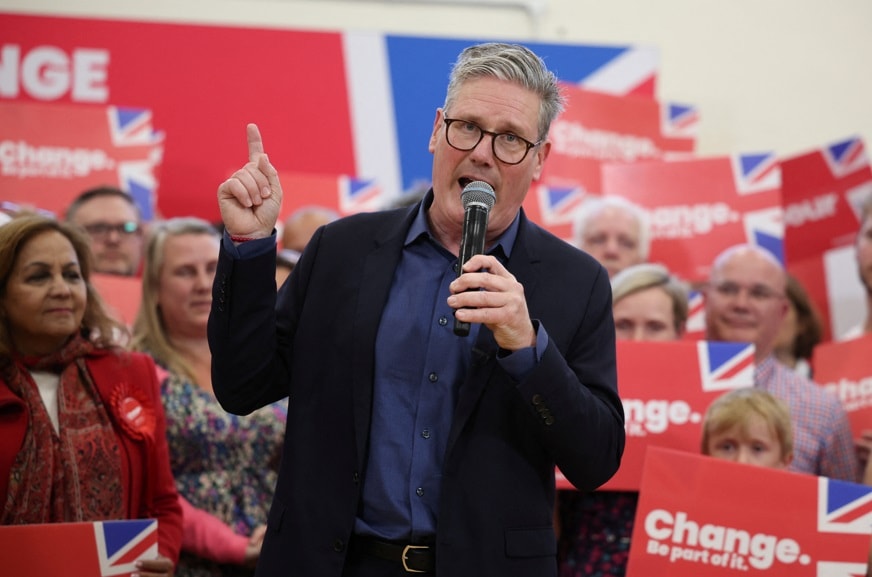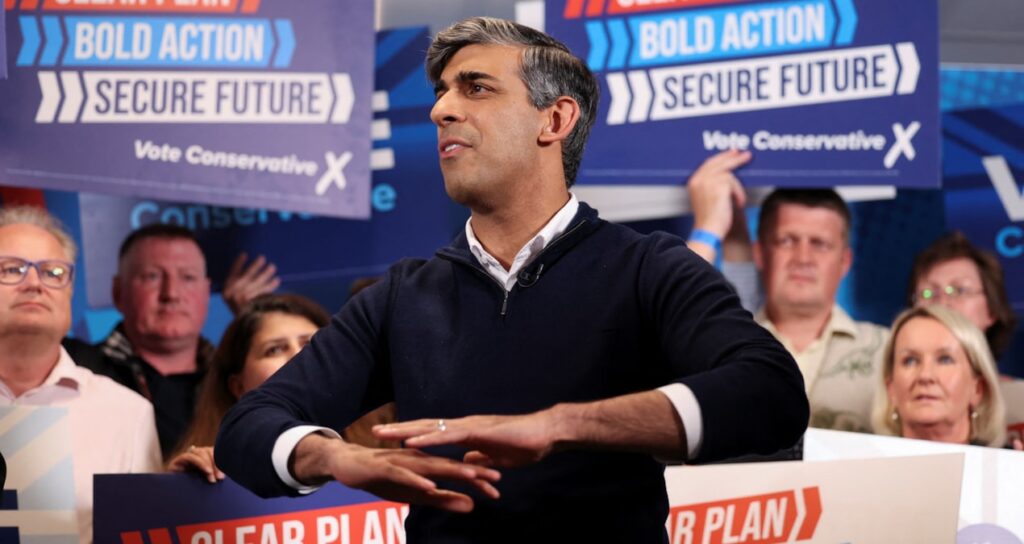The British people are going to the polls to decide on the new staff who will govern the country for five years.
Citizens in the country of around 50 million voters began casting their ballots at ballot boxes that opened at 7am local time (9am TSI) to choose their representatives to the lower house, the elected branch of parliament.
A total of 4,515 candidates are vying for admission to the 650-seat lower house of parliament, and voting will close at 10pm CET. Results are expected to be announced one by one from the electoral districts, but the overall picture of what will be formed in parliament is expected to become clear by the morning of the 5th.
The Labour Party is clearly in the lead
Surveys by polling companies predict that the main opposition Labour Party will win by a large margin, while the ruling Conservative Party will suffer a defeat.
The Conservative Party, which won 365 seats in the last election, is expected to see its number reduced to 100, while opinion polls predict the Labour Party will win more than 400 seats.

Labour leader Keir Starmer
Opinion polls suggest the far-right Reform UK Party, the yellow Liberal Democrats, the Scottish National Party and the Green Party could win multiple seats in the House of Commons, while parties representing Northern Ireland and Wales could also be included in Parliament.
Pro-Palestinian independent candidates are also vying for parliament in the election. These candidates include Andrew Feinstein, a Jew who was elected to South Africa’s parliament in Nelson Mandela’s first election. Feinstein is running in the same constituency as the election favorite, Labour leader Keir Starmer. Feinstein hopes that by winning, he can prevent Starmer from becoming prime minister.
British Chancellor Rishi Sunak said in a statement on May 22 that the date for an early election planned for the second half of the year is July 4. Sunak said, “Now is the time for England to choose its future. It is time to decide whether we want to build on the progress we have made so far, or go back to square one with no plan or certainty. I met with him earlier today.” He appealed to the British King and requested the dissolution of Parliament, but the King accepted the request and said, “I will hold a general election on July 4.”


